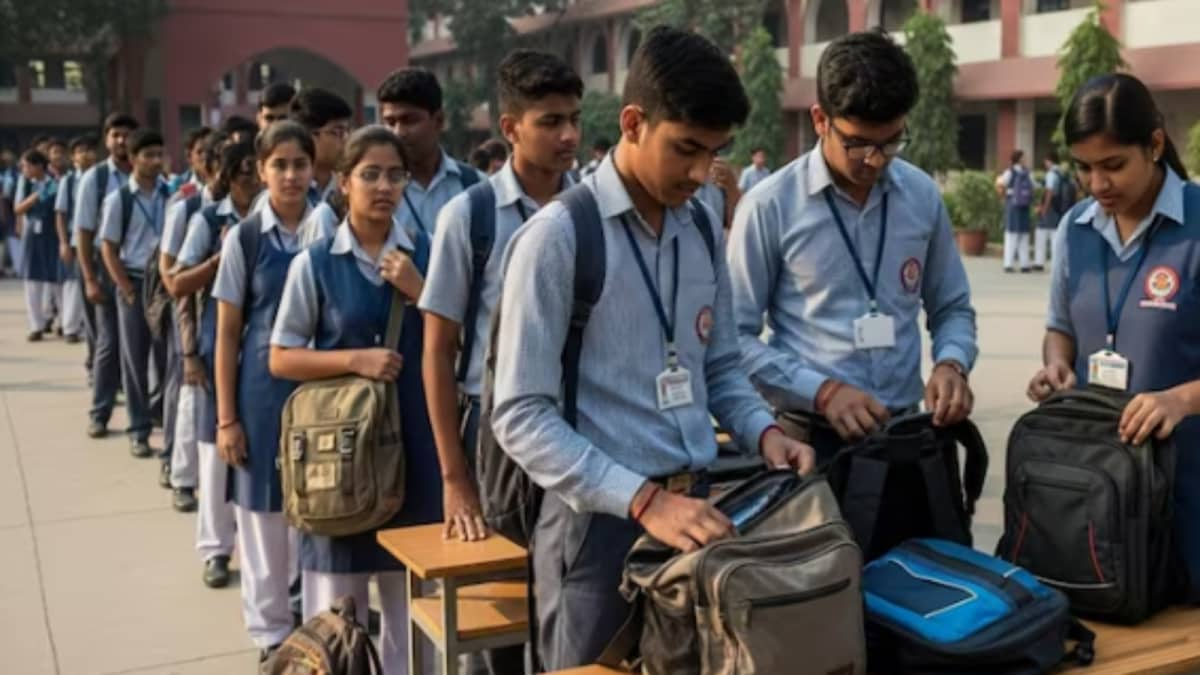Last Updated:
A school principal said that bag checks reveal only part of the issue, as the real challenge lies in addressing outside influences and guiding students on their choices

In some instances, parents encourage students to carry mobiles to stay in touch while attending tuitions after school. (Representative/News18 Hindi)
The fatal stabbing of a student at a Seventh-Day Adventist (SDA) Higher Secondary School in Ahmedabad has sparked concern across the city, pushing schools to tighten campus security. Many institutions have quietly resumed surprise bag checks, carrying them out discreetly yet thoroughly.
Surprising Finds In Student Bags
Recommended Stories
According to a Times of India report, the items discovered during these bag checks are alarming. One principal was quoted as saying, “It is surprising and worrying. It shows how much the lives of students extend beyond classwork. Apart from the expected books and tiffins, mobiles, tablets, lighters, cigarettes, vapes (electronic cigarettes) and, in a rare case, alcohol in a water bottle were found.”
Another school principal added, “We also found whiteners, lipsticks, kajal, nail filers, deodorants, oral contraceptives, condoms and even spare clothes and shoes.”
Additionally, blades, paper cutters and even chains were found in many schools. In reaction to the tragic incident at SDA school, one institution has completely banned scissors and rounders, the report stated.
“Unless parents receive a written notification from the school to send these items, they should not send them,” a teacher shared. School management has also confiscated playing cards, romantic or pornographic novels, expensive pens, shiny jewellery, journals and cash beyond the usual Rs 100-200 limit.
Parents Unfazed Despite Discovery Of Adult Books
A school principal told Times of India, “Parents are informed immediately about the confiscated items, and they are handed over during parent-teacher meetings. However, some parents confidentially admit that their children do not listen to them.”
A teacher added, “Some parents are comfortable even after finding ‘adult books’ and consider them a part of growing up.”
In some instances, parents encourage students to carry mobiles to stay in touch while attending tuitions after school. In cases involving drugs or sharp weapons, schools refer the matter to the district education office (DEO) or the police.
“We mainly rely on counselling, as punishment is not the answer. The environment around them affects these innocent children. If a child brings a blade or a romantic novel, we must ask why, before we decide the next step,” said a principal.
Imported Energy Drink Hidden In Student’s Bag
Perhaps the most attention-grabbing item is an imported energy drink worth Rs 1,500. “Imported energy drinks are now part of the barter system. Students bring it hidden in water bottles and take favours in exchange for sips, such as doing homework, completing projects and even securing a seat in class,” admitted the management of a prominent school on condition of anonymity.
The ‘Depth’ Of Bag Checks
Speaking to Times of India, a concerned principal shared, “Bag checks are just scratching the surface. What is inside reflects the environment outside – the home, the screen and the streets. Schools can confiscate items, but the real work lies in making children understand why they feel the need to carry them.”
Experts Weigh In
Senior psychologist Dr Prashant Bhimani told Times of India, “Peer pressure plays a big role. If one student brings something, others often follow. Popular culture, especially K-pop and web series, influences behaviour, normalising adult habits seen on screen for teenagers.”
Counsellor Smita Ghosh added, “Excessive exposure to violence through OTT platforms makes some children believe that they need a blade, paper cutter or chain to protect themselves and that their use is normal.”
She further commented, “It would not be wrong to blame the home environment either, where addictive substances are easily available and children are accepting them as an essential part of life.”
Loading comments…
Read More



